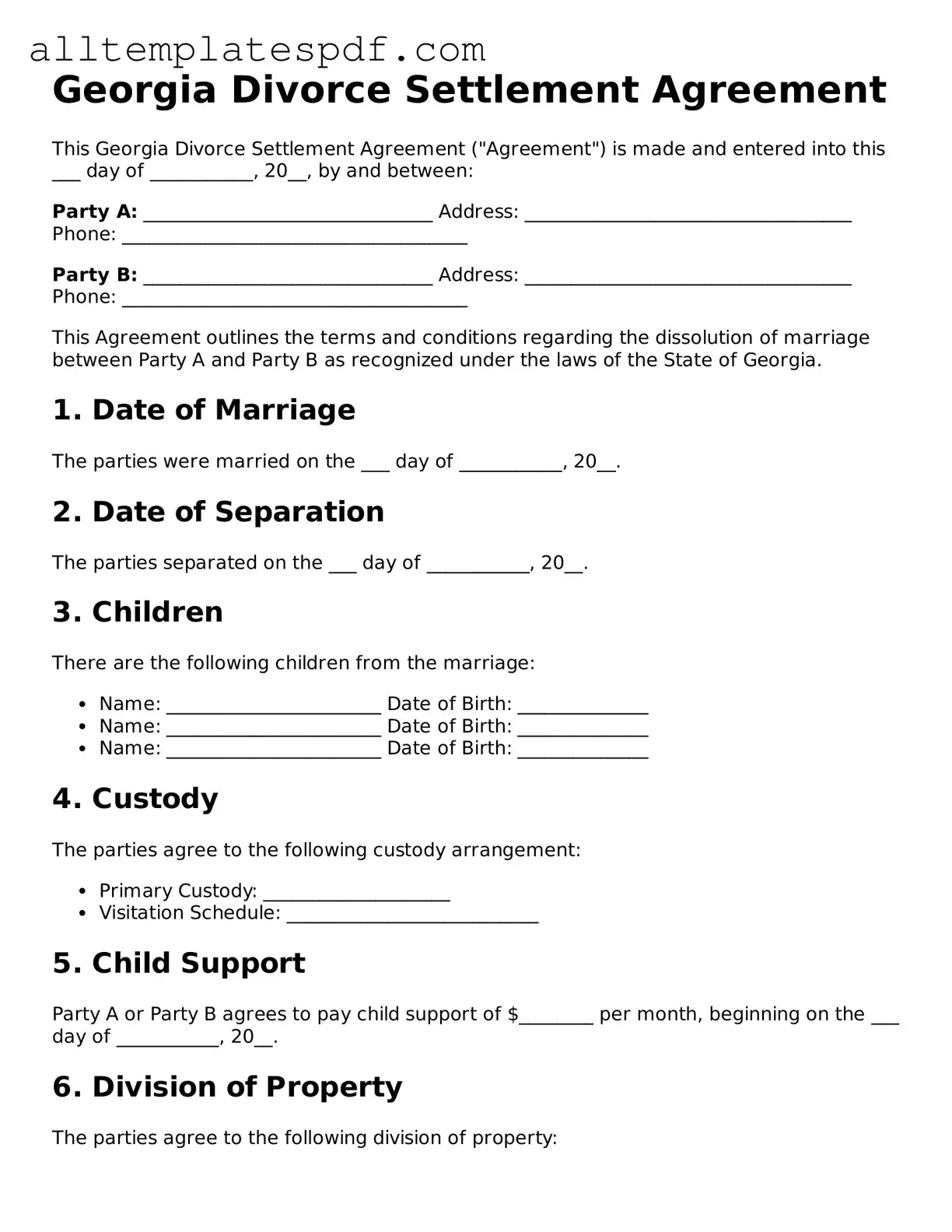Blank Divorce Settlement Agreement Template for the State of Georgia
The Georgia Divorce Settlement Agreement form is a legal document that outlines the terms agreed upon by both spouses during a divorce. This form addresses important issues such as property division, child custody, and financial support. Completing this form accurately is essential for ensuring that both parties' rights and responsibilities are clearly defined.
To fill out the form, please click the button below.
Open Editor

Blank Divorce Settlement Agreement Template for the State of Georgia
Open Editor
Fast and easy form completion
Complete Divorce Settlement Agreement digitally — fast and easy.
Open Editor
or
↓ Divorce Settlement Agreement PDF Form
